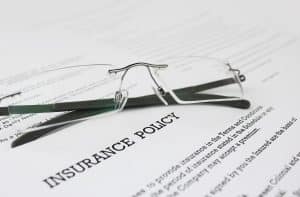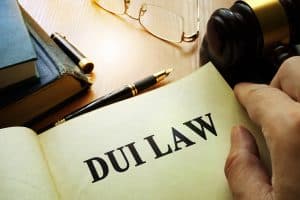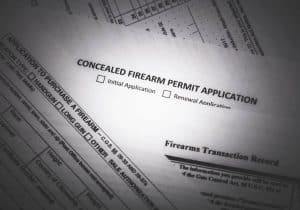
When faced with a charge of driving while intoxicated, drivers are often left confused and anxious over the possible consequences. While many drivers know that driving while intoxicated is a crime, they don’t necessarily know what punishment they may face if they are convicted. Worse, many drivers are simply unaware that a DWI conviction can carry severe, long-term restrictions and restraints on their lives beyond their driving records.
Fortunately, drivers do not have to face the consequences of these charges on their own. An experienced attorney can help the accused understand what they are charged with and what the ramifications may be. Being prepared for the consequences will go a long way toward adjusting to them, and this knowledge will help drivers move on from a conviction.
What Charges Do Drivers Face?
Depending on your circumstances, there are actually a few different charges you may face as a driver if you are suspected of being under the influence of alcohol. These charges are found under Section 1192 of Article 31 in New York’s Vehicle and Traffic Law (VAT). These depend on what sort of vehicle the driver was driving at the time of an arrest, what their blood alcohol content (BAC) was at the time of arrest, and what their age at the time of the offense was. The following list covers the most likely charges that a driver might face:
- Driving While Intoxicated (DWI) - This is the most common conviction and what most drivers imagine when considering DWIs. Drivers may be convicted of driving while intoxicated if their BAC was recorded as .08 to .17, but commercial vehicle drivers may be convicted of DWI if their BAC was recorded as .04 or higher.
- Aggravated Driving While Intoxicated (AGG DWI) - AGG DWIs are charges applied to cases in which a driver was found to have a BAC of .18 or higher. It is considered a more serious offense than a DWI.
- Driving While Ability Impaired by Alcohol (DWAI) - DWAIs are charges for cases in which a driver was found to have a BAC of .05 to .07 or suffer another sign of intoxication.
- Zero Tolerance - This charge applies in any case where a driver under the age of 21 is found to have a BAC of .02 to .07 while operating a vehicle.
Additionally, under Section 1194 of the VAT’s Article 31, drivers are legally required to take chemical tests when asked, provided the officer has reasonable justification to believe that the driver may be intoxicated. Failing to submit to a breathalyzer test is a charge that may be applied to a case even if the driver is not guilty of another charge relating to alcohol.
Charges for DWI, DWAIs, AGG DWIs, zero tolerance, and refusal to submit to a chemical test can carry various legal penalties depending on the exact nature of the offense and how many previous convictions a driver has. However, there are additional, more far-reaching penalties and punishments for convicted drivers that go beyond the criminal punishments, such as higher insurance rates, employment restrictions, and limitations to one’s right to purchase, own, and carry a firearm.
How Long Do DWI Convictions Stay on a Driver’s Record?
If a driver is convicted of a DWAI, DWI, AGG DWI, zero tolerance, or refusal of chemical test charge, the conviction will be shown on their driving records for at least several years after the date of conviction. These records can include:
- A standard driving record, which will cover any New York convictions for up to 15 years after the conviction and any New York license suspensions or revocations for 4 years after the end of the suspension or revocation.
- A lifetime driving record, which will contain all information that the New York DMV has on a driver’s actions in the state. This is effectively a more extensive standard driving record that covers even convictions that occurred more than 15 years ago and suspensions that ended more than 4 years ago.
- A commercial driving record, which will include any and all information about convictions, revocations, suspensions, and any other actions relating to a driver’s license in any state and in any vehicle.
These records may be accessed by court officials, employers, and others if they have legitimate grounds for reviewing them. As such, a DWI may hold an incredible influence over several decades of a driver’s life.
Can a Driver Get a DWI Expunged in New York?
Many drivers seek to limit the negative long-term consequences by way of expungement from their records. However, New York does not generally allow expungement for DWI offenses, and a criminal record for convictions of these offenses may only be sealed under special circumstances, which are incredibly difficult to meet. The following list will include the circumstances listed in New York’s Criminal Procedure Law under Section 50 of Article 160 as reasonable justification for the sealing of criminal records:
- A driver was acquitted of their charge.
- A driver’s DWI case was dismissed.
- A driver’s DWI charge was dropped or vacated.
- A driver’s DWI conviction was set aside.
Even if you meet these circumstances, convictions for DWAIs cannot be sealed. DWAIs are classified as traffic violations, not criminal offenses, and thus the Criminal Procedure Law does not apply its statutes to the offense nor to any other traffic violations that are not criminal in nature. Because there are no other statutes allowing for expungement, DWAIs cannot be removed from a record, even if a driver is acquitted or has their case dismissed, dropped, vacated, or set aside.
However, the expungement and sealing of records is not the only way to mitigate the consequences of a conviction. Drivers convicted of a DWI may seek to earn either a Certificate for Relief from Disabilities or a Certificate of Good Conduct under New York law. Both of these documents were created to help those who face civil penalties for their convictions prove that they have been rehabilitated and should no longer bear the weight of these penalties.
A Certificate for Relief from Disabilities (CRD) is provided for under New York’s Corrections Law in Sections 701, 702, and 703 of Article 23. These certificates are meant for offenders who have been convicted of no more than one felony and serve as a means to restore rights and liberties that were automatically impacted by their conviction, including the privilege of employment in professions such as law, medicine, and real estate. CRDs may be issued by various bodies including the court which convicted the offender, with some courts doing so as part of sentencing. However, these certificates do not prevent judicial, administrative, and regulatory bodies from weighing a conviction as a key factor in determining if they will suspend, revoke, or refuse to issue any licenses and employment to a convict.
On the other hand, Certificates of Good Conduct (CGC) are detailed in Section 703-A and 703-B of Article 23 in New York’s Corrections Law. They may be provided to individuals with more than one felony conviction after a certain set amount of time has passed since they have been released from supervision or from the end date of the sentence. How long the period of time one must wait depends on the severity of their most serious crime:
- If the driver is only guilty of a misdemeanor offense at worst, then they must wait one year after the end of their sentence before they may receive a certificate.
- If a driver is guilty of a Class C, D, or E felony at worst, then they must wait three years.
- If a driver is guilty of a Class B or A felony, then they must wait five years.
These certificates remove the mandatory disabilities and bars to employment imposed by the law, and they also appear alongside convictions in one’s criminal record to act as signs of presumption of rehabilitation for the convicted. Generally speaking, they must be granted by the Department of Corrections and Community Supervision, and like a Certificate for Relief from Disabilities, they do not prevent a regulatory body or employer from considering one’s prior conviction as a factor in their judgements.
Of course, all of this can be quite difficult for the average person to understand, let alone to pursue. That’s why it is important for a driver charged with an alcohol-related driving offense to have a skilled attorney providing guidance and representation. Even if he or she is unable to prevent the conviction of a client, an attorney may be able to ask the court for a Certificate for Relief from Disabilities. After a driver has served their sentence, an attorney may also assist in acquiring a Certificate of Good Conduct after the necessary waiting period.
How Does a DWI Affect a Driver’s Insurance?

One of the first negative consequences of a DWI conviction to be noticed by drivers is the issue of insurance. Under New York law, a conviction for a DWI will be sent to the driver’s insurer for review because these convictions may be considered just grounds for cancelling an auto policy. They may outright cancel a policy or simply refuse to renew it, and if a driver cannot find another insurer to issue them a policy, then they will be forced to rely upon the New York Automobile Insurance Plan at a substantially higher cost. Even if they do keep their current insurer or find a new private company to insure them, drivers will have to accept that a conviction for a DWI will typically result in higher premiums, as the conviction remains on insurance records for anywhere from five to ten years depending on the insurer.
Can a Driver Become a Lawyer, Medical Professional, or Real Estate Broker with a DWI?
Many careers that require a professional license to practice are negatively affected by a DWI conviction. These can include lawyers, doctors, real estate brokers, and many others that expect a high level of ethical integrity and personal responsibility in their members. Any conviction for a felony DWI will result in an immediate revocation of a driver’s license to practice in these fields, and convicted practitioners will have to work hard to prove to the regulatory boards that they deserve to be reinstated.

If a driver did not hold any of these licenses at the time of their conviction, their conviction for any DWI-related offense may still negatively impact their prospects of obtaining one. Beyond imprisonment interfering with the education required to acquire these licenses, many review boards take a very strong stance against alcohol-related infractions even if it was only a DWAI. Applicants will need to prove to the boards that govern these professions that they have learned from their mistakes and addressed the issues.
Can a Driver with a DWI Get a Gun Permit?

A DWI conviction may affect your ability to apply for a gun permit in New York. New York law requires that an applicant must not have a prior felony or other serious conviction, and some DWI convictions are considered felonies. Being arrested for a DWI offense may also result in an immediate suspension of a license to own and carry a firearm, and a subsequent conviction will require an additional hearing in which one will have their gun permit revoked for a set period of time.
Can a Driver with a DWI Get a CDL?

A DWI conviction does not necessarily prevent a driver from earning a CDL. However, to acquire a commercial driver’s license (CDL), a driver must have an valid New York driver’s license when applying. If a driver’s privileges have not been reinstated after the suspension or revocation of their license due to a DWI conviction, then they will be unable to acquire a CDL. Additionally, CDL holders are held to stricter standards than non-CDL holders. They may be convicted of a DWI offense with only a BAC of .04 or higher. This structiny is applied even when a CDL holder is driving a non-commercial vehicle, and a CDL holder may face separate DWI charges at the same time if they are caught operating a commercial vehicle with a BAC of .08 or higher, one as a commercial driver and one as a regular driver.
Finally, even if a driver acquires a CDL, they may not be able to seek employment with it. Truck companies and similar businesses have many candidates that they might consider during the hiring process, and they will often pick drivers who lack a DWI conviction over those with one or more DWI convictions.
Can a Driver with a DWI Become a Police Officer?

A DWI conviction will almost certainly affect a driver’s ability to join law enforcement after the fact. A felony conviction, even for a DWI charge, will typically bar any individual from becoming an officer by law, regardless of the local or state government they apply to join.
On the other hand, misdemeanors and traffic infractions will not automatically prevent a driver from being accepted into law enforcement. However, the administrative staff of a police department will be able to review an applicant’s criminal record and may take note of their convictions, especially if there are multiple occurrences. When compared to an applicant with a clean criminal record, the hiring process will almost certainly favor the applicant with a clean criminal record.
Can a Driver with a DWI Join the Military?

While requirements and expectations vary among the branches of the military, all of them will take into consideration an applicant’s driving record and convictions for various offenses related to it. This is similar to how lawyers, doctors, real estate brokers, and police officers are all expected to have good moral character, and a history of DWI offenses and convictions casts doubt on a recruit’s suitability for the rigors and requirements of military life.
However, having a DWI conviction is not the end of a hopeful applicant’s attempts to join the military. The various service branches will often offer waivers for felony convictions relating to DWIs if an applicant has shown that they have improved as a person and moved past that period in their life, especially if the DWI was not fairly recent and the applicant possesses other qualities suitable for military service.
What Should I Do if I’ve Been Charged with DWI?
If you have been charged with a DWI in New York, contact Rosenblum Law for a free, no-obligation consultation today. Our experienced attorneys can analyze the situation and pursue the best outcome for your situation. Call 888-883-5529 or email us today.


